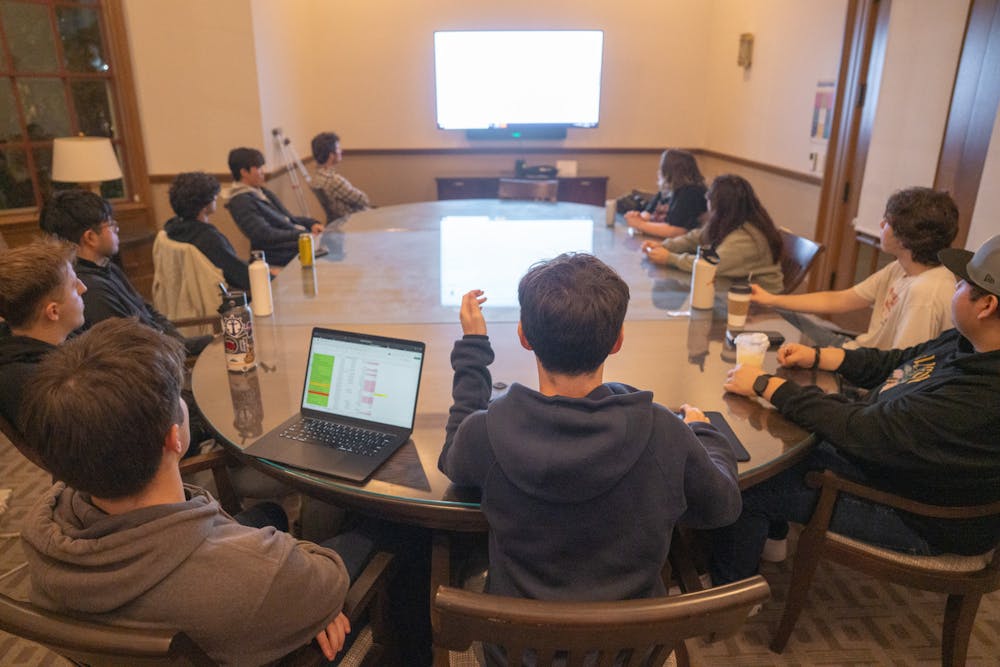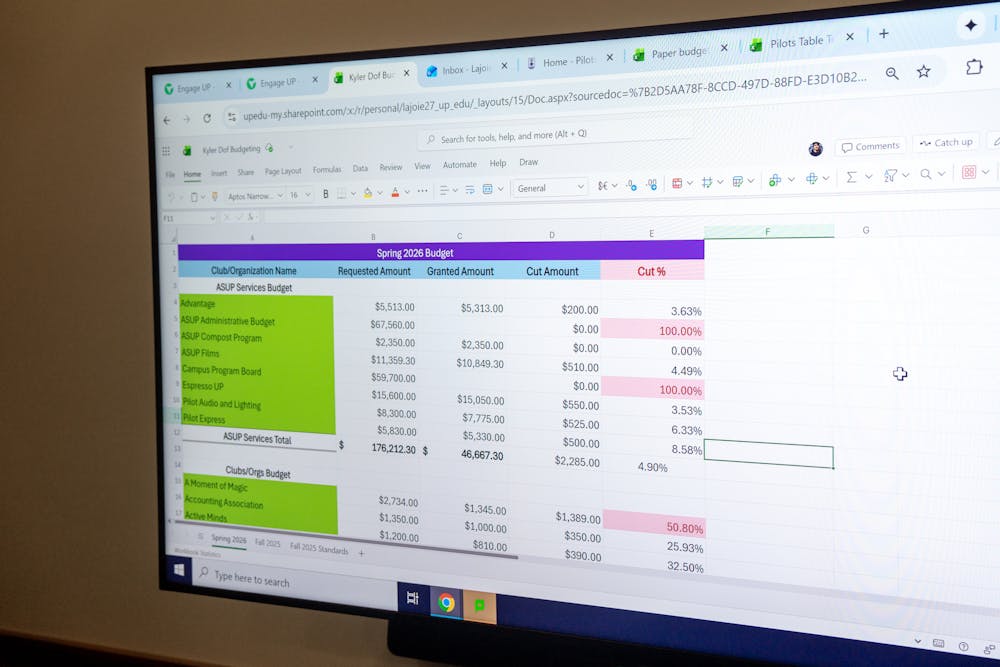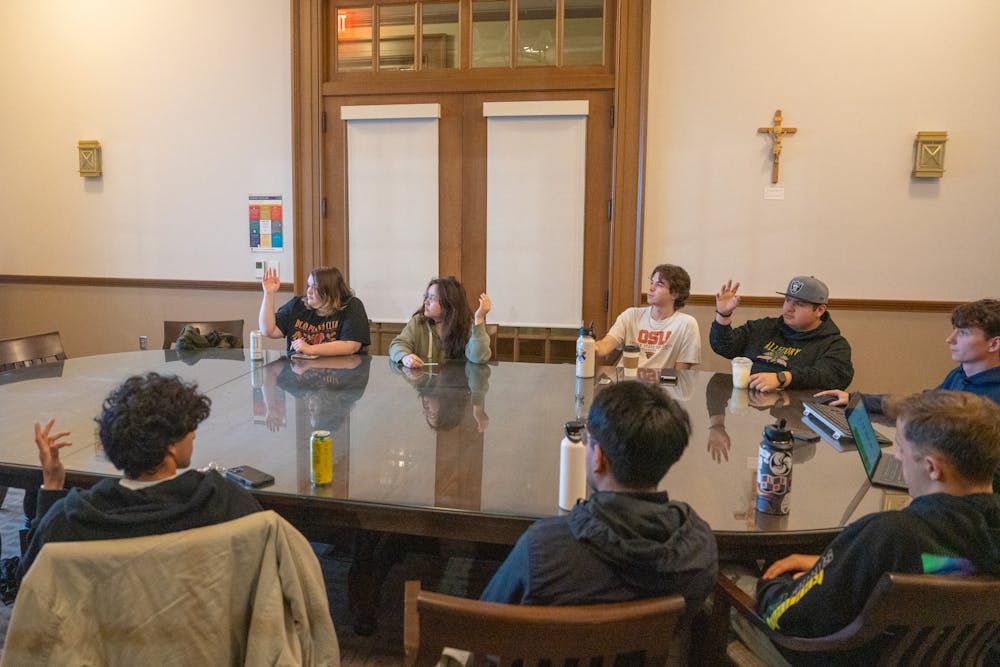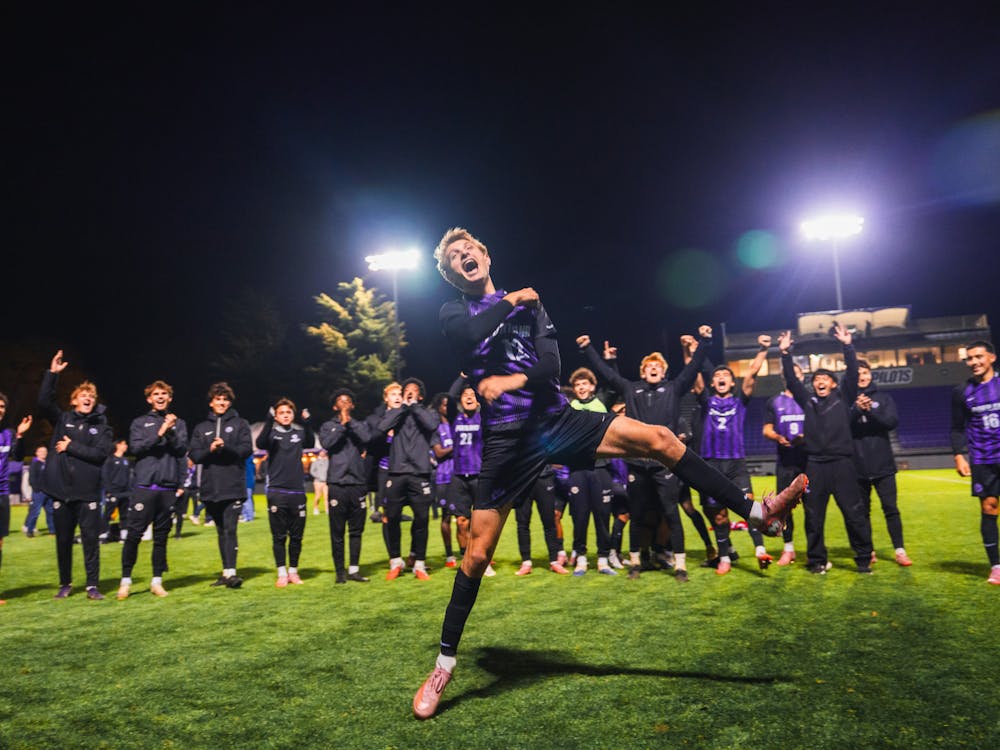Clubs have undergone major budget cuts in the 2025 budgeting session, Associated Students of the University of Portland (ASUP) President Aiden Sanchez announced in a Nov. 3 senate meeting.
Clubs requested a total of $682.5k, with ASUP allocating only $371k for this session. This results in an average cut of 60% for every club, according to Kyler Lajoie, ASUP director of finance and chair of the financial management board (FMB).
ASUP encourages club leaders to schedule an interview with FMB or reach out to their school senator to advocate for further funding.
These interviews will be held Nov. 10-14 in the St. Mary’s Student Center.
“The best way for clubs to advocate for themselves is through an FMB interview, where we can speak with club leaders face-to-face to see what their needs are,” Lajoie said.
Last year, clubs requested $580k and the board had $400k to allocate. With the number of clubs remaining consistent since last year, around 110, harsher budgeting cuts are to occur over this session.
The decreased budget for this year is a result of lower enrollment numbers for the 2025-26 academic year, as the club budget is drawn from the $150 student activities fee, according to Associate Director of Student Engagement and Adviser of ASUP Elizabeth Parkman.

The FMB determines how to manage this year's ASUP budget.
FMB is a committee of 10 student employees who are responsible for equitably allocating the club fund during each year’s three-week budgeting session.
Having a student-run committee facilitating the financial management process ensures the student body’s concerns will be appropriately advocated for, according to Parkman.
FMB is composed mainly of business majors, but is open to students of every major.
“We want to hire students who are active on campus, and so we’ll have accurate representation for the needs of different clubs,” Lajoie said.
If an FMB member is involved in a certain club the team is working on, they are required to step out of the room during deliberation to avoid bias.
Established allocation standards facilitate the FMB budgeting cuts process.
“Some of the most commonly requested items like lodging, airfare, general meeting and food can all be standardized among clubs,” Lajoie said.

A spreadsheet overview of the ASUP budget.
FMB also categorizes clubs as either cultural, athletic or academic. This categorization is an attempt at an even deliberation of similar organizations who will have similar needs, according to Lajoie.
“It’s important that clubs put their priorities in the description when they create the budget because FMB is reading for every single club to see what they need and how many members there are,” Lajoie said.
The group then votes on the final budget allocation for each club before the budget is returned to the clubs’ treasurers. If FMB has noted in the returned budget to schedule an interview, then clubs are highly encouraged to do so.
“No money is guaranteed from an FMB interview, but no extra funding will be allocated if a club doesn’t come in to meet with us. Most clubs that come in to interview will usually receive some money back.”
After the interview, the budget is sent to ASUP for approval.
FMB also considers club activity on Engage when creating future budgets and is crucial for the board’s considerations of lesser-known clubs, according to Lajoie.
This is because university administration is also in need of more data for student engagement, according to Parkman.

The FMB determines how to manage this year's ASUP budget.
When clubs utilize the UP Mobile app to track their event attendance, the data can signal a need for more funding.
“We want to be good stewards of our funds,” said Parkman. “We have mandated that clubs receiving ASUP funding post their events on Engage, so that any student that is interested in getting involved is able to go to the events page and see all the options for how they can participate.”
FMB also encourages clubs to fundraise using their Waldschmidt account, and Sanchez has been working with the Office of Advancement and Students Today, Alumni Tomorrow (STAT) to support students in the fundraising process, according to Lajoie.
FMB’s role is to financially support clubs, but they must do so within the constraints of the budget.
“FMB really wants to create a fair and equitable budget for clubs, and in order to do that to the best of their ability, they need feedback from clubs about what their priorities are,” Parkman said. “It’s such an intense process to try to cut [the budgets] so much in that one week. So if clubs get a notice from FMB to come and do an interview, please do that.”
Clara Pehling is a news reporter for The Beacon. She can be reached at pehling28@up.edu.








